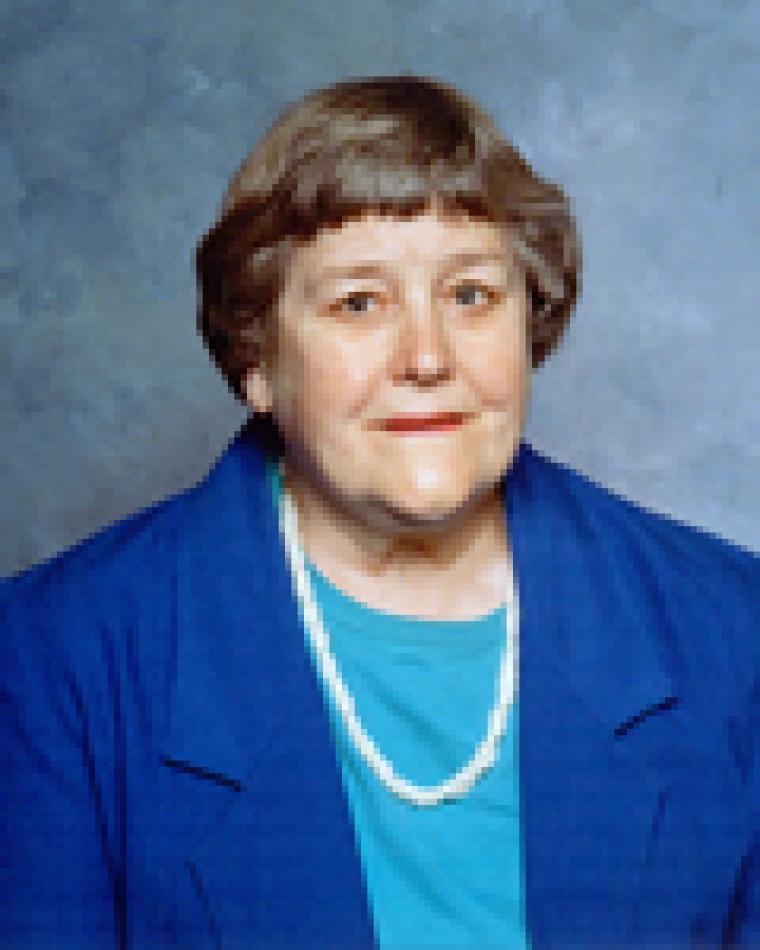
Yvonne Brill
Yvonne Brill
Contact Menu
Yvonne Brill is presently a consultant specializing in satellite technology and space propulsion systems. Since retiring from the International Maritime Satellite Organization (INMARSAT) in 1991, she served from 1991-2007 as a member of several U.S. National Research Council Committees evaluating pertinent space transportation systems. She is presently a member of the National Research Council Space Studies Board. From 1994-2001 she was a member of the NASA Aerospace Safety Advisory Panel, an independent senior advisory panel reporting to NASA and the U.S. Congress, on technical issues effecting NASA. She also provided extensive technical support services on commercial communication satellites to Telenor, Oslo Norway and Shinawatra Satellite Co. Ltd., Bangkok Thailand during their procurements of satellites in the U.S.
Ms. Brill received her BSc in Mathematics from the University of Manitoba, Canada and her MS in Chemistry from the University of Southern California. Her career began in the aircraft industry but shifted into the new field of rockets when Douglas Aircraft, her employer, was awarded the Project RAND contract. She became a Research Analyst in the Missiles Division with the Project, which later became the RAND Corporation. She participated in pioneer studies which defined rocket propellant performance and derived high temperature thermodynamic properties for rocket exhaust gas species. The data from these studies were incorporated into the tables which provided the first industry standards. Following RAND, Ms. Brill worked for a number of different corporations on the design and testing of a variety of ramjet and turbojet engines which used hydrocarbon and experimental high energy propellants. In the early years of the "Space Race" she worked as a consultant evaluating proposed new rocket fuels and oxidizers.
In 1966 she joined the staff of RCA AstroElectronics initially as a senior engineer in propulsion systems responsible for launch vehicles and on-orbit satellite propulsion. Her patented invented while at RCA, the electrothermal hydrazine thruster, manufactured by Primex Aerospace (now Aerojet) and initially flight proven in 1983, currently has a wide representation in space. More than two hundred of these rocket engines have been flown on both low earth orbit and geosynchronous satellites. At RCA as Manager NOVA Propulsion she managed the fabrication through qualification and flight of theTeflon Solid Propellant Propulsion System (TSPPS) flown on the RCA/US Navy NOVA spacecraft. Successful flight of the first TSPPS system in 1981 brought electric propulsion to an operational status in the United States. The TSPPS enabled three NOVA satellites to make precise ephemeris data available in real time to users of the US Navy Navigational Satellite System for many years until that system was phased out in favor of the Global Positioning Satellite System. Additionally, Ms. Brill has held other engineering and managerial positions during her career. From 1981 to 1983 she was at NASA Headquarters in Washington, DC as Manager, Solid Rocket Motor, Space Transportation Systems. From 1986 to 1991 she was employed by the International Maritime Satellite Organization (INMARSAT) in London as Propulsion Manager for the INMARSAT-2 satellite system.
Ms. Brill is an Honorary Fellow of the American Institute of Aeronautics and Astronautics (AIAA) and a Fellow of the Society of Women Engineers (SWE). She is a member of the National Academy of Engineering and the Women in Technology International Hall of Fame. Among her awards are the AIAA 2002 Wyld Award in Rocket Propulsion, the IEEE 2002 Dr. Judith A. Resnik Award, and the NASA Distinguished Public Service Medal in 2001. In 1993 she received the SWE Resnik Challenger Medal, and in 1986 the SWE Achievement Award, that organizations highest honor. In April 2009 she was invited to give the Gardner Lecture at MIT; her talk was on "Megabites for the Masses". Also in April 2009 she received the American Association of Engineering Societies (AAES) 2009 John Fritz Medal.
